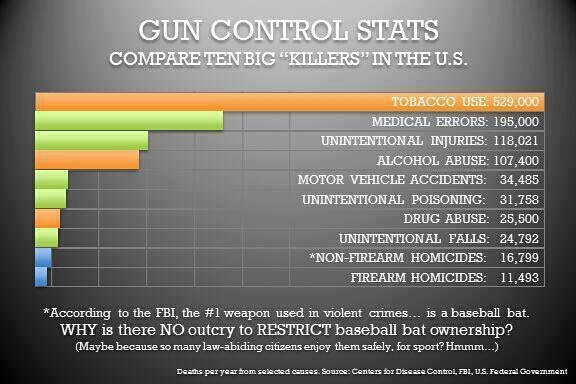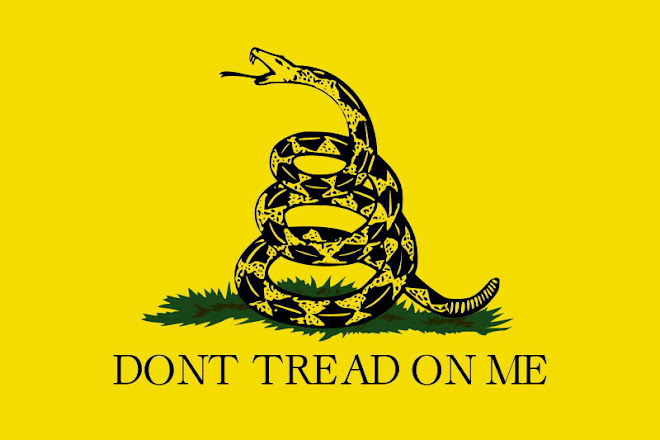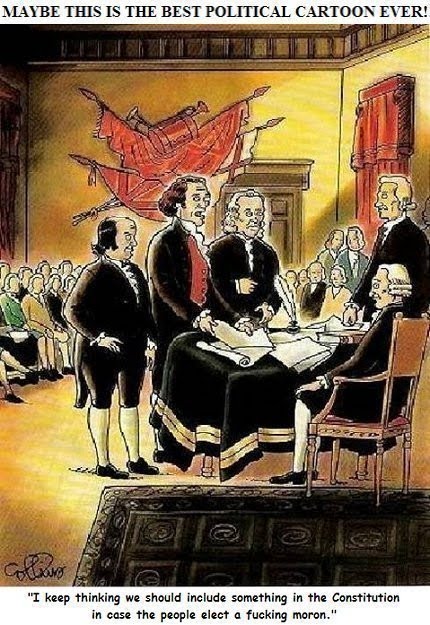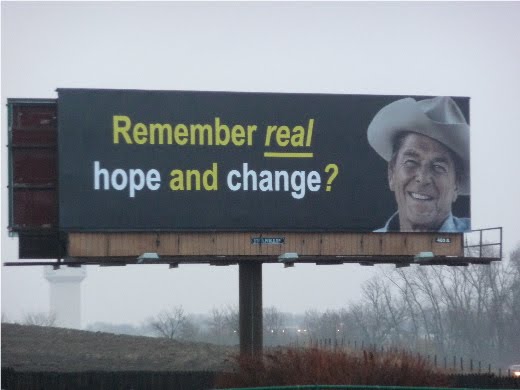I found Haynes's essay laughable as well. Whenever the Leftists lose, they then call for civility, common ground, and working across the aisle. So how come when they win, they just ram stuff down our throats? The Urinal Sentinel is a clown show, led by clowns, two of whom George shreds in this guest column form Club for Growth's most recent newsletter. It is spot on, and excellent, like everything he writes.
-------------------------------------------------------------------------
A Call For Civility From the Journal Sentinel?
 Guest Column by George Mitchell
Guest Column by George MitchellDuring the 2011 hysteria in Madison over Act 10 I sent an email to Journal Sentinel Managing Editor George Stanley. I observed to Stanley (and others) that opponents of Governor Scott Walker hurt their cause by resorting to thuggish behavior (death threats, nails in driveways, obscene graffiti, comparisons of Walker to Hitler, etc.).
Stanley responded that “both sides” were guilty. When I asked, “Are you suggesting that the behavior of Walker supporters is comparable to that of his opponents?” Stanley responded, in part, “I prefer honesty to bulls---.” After I sought clarification of that comment, he wrote, “…[Y]ou’re just full of s---, that’s all I’m saying.”
Stanley wasn’t finished. For good measure, he recommended I consider “turning honest…I like to think that every soul can be saved.”
This exchange came to mind as I read David Haynes’ Sunday Crossroads commentary, “A disagreeable state: Can Wisconsin citizens be civil again?” Haynes, the Journal Sentinel’s editorial page editor, asked why liberals and conservatives “have to be so disagreeable” in discussing policy differences. He suggested taking a “time out from demonizing one another to try to understand one another.”
There is much irony in such a theme being advanced by a leading editor at the Journal Sentinel. Apart from Stanley’s decidedly uncivil exchange with me, has Haynes not read some of the caustic emails Stanley sent this year to readers who objected to the paper’s John Doe coverage?
In light of its recent track record, the Journal Sentinel surely should think long and hard before casting aspersions about a lack of “civility.” Indeed, the paper itself has contributed to the divisive climate that Haynes decries.
Nothing illustrates this better than the paper’s four-year stretch of reporting on John Doe investigations involving Governor Walker. During that time the paper has trashed many principles of journalistic fairness.
For example, in the early years of the John Doe Journal Sentinel reporting relied heavily on sources who transmitted illegally leaked information. Stories cast many individuals in a negative light, including people who were legally prohibited from comment. The people portrayed unfavorably in the Journal Sentinel didn’t know who had spread negative information to the paper. For legal and practical reasons, they could not effectively respond. Consequently, readers received a sliver of information — the opposite of transparency and balance (or journalistic “civility”).
The paper’s stream of damaging innuendo was a key ingredient of the decidedly uncivil stew that contaminated the recall election campaign that Walker faced in 2012. Relying on Journal Sentinel coverage, Walker opponent Tom Barrett urged the Governor to “come clean.” Following Walker’s recall election victory, Democratic Party Chair Mike Tate predicted that because of the John Doe Walker would see the “inside of a jail.”
Was there an overriding public purpose that justified setting aside the traditional journalistic principles of transparency, balance, and fairness? None whatsoever. To the contrary, relying on the unlawful release of selective information corrupted and eroded concepts central to our justice system. This was anything but “civil.”
Fast forward to the current phase of the John Doe investigation, one premised on a "criminal theory" that is at direct odds with federal constitutional jurisprudence. Haynes' editorial board and Stanley’s newsroom are sympathetic to this theory. The result? A series of articles and editorials that cast a dark cloud over activity that two judges have found to be legal. The Journal Sentinel’s reporting and commentary have led several national media outlets to put Governor Scott Walker at the center of a "scandal." This dogged Walker throughout his successful re-election campaign. Yet Haynes now positions himself apart from — and distinctly above — the rancor and divisiveness spawned in part by the Journal Sentinel.
Near the end of the recent campaign Haynes personally fell off the civility wagon. A week prior to the election, an online media outlet (The Wisconsin Reporter) quoted a former longtime executive at Trek Bicycle Company as claiming Mary Burke had been fired from the firm. A day later another former Trek executive effectively confirmed this story, thus exposing the media's failure to examine thoroughly the portion of Burke's resume central to her campaign. Haynes responded with a lengthy editorial under the mantra "consider the source." Because the executives have conservative political leanings, the paper judged them suspect. In an attempt to paper over its failure to vet Burke, Haynes and the Journal Sentinel effectively framed the news as a last-minute smear.
Haynes’ essay describes a time when “we [knew] and [understood] our fellow citizens better, and legislators of every stripe [got] to know one another.” Set aside, for a moment, that this amounts to an airbrushing of actual history in Wisconsin and nationally. To the extent Haynes is correct about bygone days, he also might have referenced an earlier era in Milwaukee journalism. For example, I recall well the 1960s and 1970s, when I was a journalism student, a reporter, and later an official in state government. The Milwaukee Journal of that period, led by editors such as the late Dick Leonard, was a model for the kind of discourse Haynes advocates. Leonard would not have resorted to the kind of epithets that Stanley now throws around.
Stanley, Haynes, and other Journal Sentinel editors might consider some introspection. Rather than blame readers who dispute the paper's approach — a recurring Stanley posture — they should go "back to the future" (Haynes' phrase) and consider how to restore a newspaper worthy of Dick Leonard's stature.
EDITOR'S NOTE: This piece was originally sent to the Milwaukee Journal Sentinel editorial board. They took a pass on running it.
Stanley wasn’t finished. For good measure, he recommended I consider “turning honest…I like to think that every soul can be saved.”
This exchange came to mind as I read David Haynes’ Sunday Crossroads commentary, “A disagreeable state: Can Wisconsin citizens be civil again?” Haynes, the Journal Sentinel’s editorial page editor, asked why liberals and conservatives “have to be so disagreeable” in discussing policy differences. He suggested taking a “time out from demonizing one another to try to understand one another.”
There is much irony in such a theme being advanced by a leading editor at the Journal Sentinel. Apart from Stanley’s decidedly uncivil exchange with me, has Haynes not read some of the caustic emails Stanley sent this year to readers who objected to the paper’s John Doe coverage?
In light of its recent track record, the Journal Sentinel surely should think long and hard before casting aspersions about a lack of “civility.” Indeed, the paper itself has contributed to the divisive climate that Haynes decries.
Nothing illustrates this better than the paper’s four-year stretch of reporting on John Doe investigations involving Governor Walker. During that time the paper has trashed many principles of journalistic fairness.
For example, in the early years of the John Doe Journal Sentinel reporting relied heavily on sources who transmitted illegally leaked information. Stories cast many individuals in a negative light, including people who were legally prohibited from comment. The people portrayed unfavorably in the Journal Sentinel didn’t know who had spread negative information to the paper. For legal and practical reasons, they could not effectively respond. Consequently, readers received a sliver of information — the opposite of transparency and balance (or journalistic “civility”).
The paper’s stream of damaging innuendo was a key ingredient of the decidedly uncivil stew that contaminated the recall election campaign that Walker faced in 2012. Relying on Journal Sentinel coverage, Walker opponent Tom Barrett urged the Governor to “come clean.” Following Walker’s recall election victory, Democratic Party Chair Mike Tate predicted that because of the John Doe Walker would see the “inside of a jail.”
Was there an overriding public purpose that justified setting aside the traditional journalistic principles of transparency, balance, and fairness? None whatsoever. To the contrary, relying on the unlawful release of selective information corrupted and eroded concepts central to our justice system. This was anything but “civil.”
Fast forward to the current phase of the John Doe investigation, one premised on a "criminal theory" that is at direct odds with federal constitutional jurisprudence. Haynes' editorial board and Stanley’s newsroom are sympathetic to this theory. The result? A series of articles and editorials that cast a dark cloud over activity that two judges have found to be legal. The Journal Sentinel’s reporting and commentary have led several national media outlets to put Governor Scott Walker at the center of a "scandal." This dogged Walker throughout his successful re-election campaign. Yet Haynes now positions himself apart from — and distinctly above — the rancor and divisiveness spawned in part by the Journal Sentinel.
Near the end of the recent campaign Haynes personally fell off the civility wagon. A week prior to the election, an online media outlet (The Wisconsin Reporter) quoted a former longtime executive at Trek Bicycle Company as claiming Mary Burke had been fired from the firm. A day later another former Trek executive effectively confirmed this story, thus exposing the media's failure to examine thoroughly the portion of Burke's resume central to her campaign. Haynes responded with a lengthy editorial under the mantra "consider the source." Because the executives have conservative political leanings, the paper judged them suspect. In an attempt to paper over its failure to vet Burke, Haynes and the Journal Sentinel effectively framed the news as a last-minute smear.
Haynes’ essay describes a time when “we [knew] and [understood] our fellow citizens better, and legislators of every stripe [got] to know one another.” Set aside, for a moment, that this amounts to an airbrushing of actual history in Wisconsin and nationally. To the extent Haynes is correct about bygone days, he also might have referenced an earlier era in Milwaukee journalism. For example, I recall well the 1960s and 1970s, when I was a journalism student, a reporter, and later an official in state government. The Milwaukee Journal of that period, led by editors such as the late Dick Leonard, was a model for the kind of discourse Haynes advocates. Leonard would not have resorted to the kind of epithets that Stanley now throws around.
Stanley, Haynes, and other Journal Sentinel editors might consider some introspection. Rather than blame readers who dispute the paper's approach — a recurring Stanley posture — they should go "back to the future" (Haynes' phrase) and consider how to restore a newspaper worthy of Dick Leonard's stature.
EDITOR'S NOTE: This piece was originally sent to the Milwaukee Journal Sentinel editorial board. They took a pass on running it.










































































